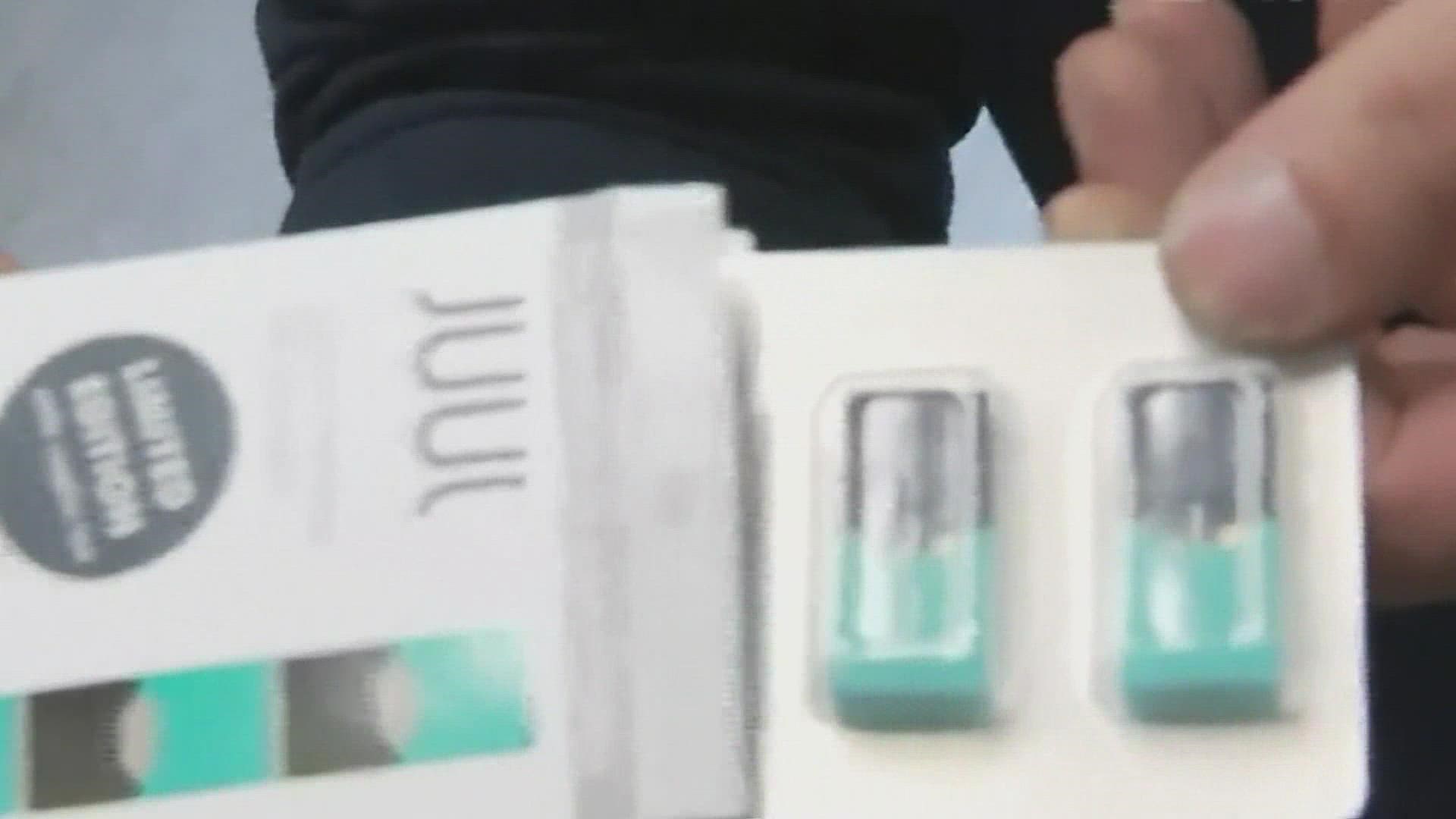NASHVILLE, Tenn. — Tennessee will get around $13 million from a national settlement between JUUL Labs and more than 30 states plus Puerto Rico.
The total agreement was for $438.5 million, which will be divided between members of the two-year investigation, with payments made over a period of up to ten years. The company will also need to follow new terms on how it can market its products.
The company sells vaporizers and flavored vaping products, and the investigation alleged that the company deliberately encouraged kids to vape as part of its marketing. It also said the company rose to prominence in the vaping industry through an advertising campaign meant to appeal to youth, even though it is illegal for minors to buy e-cigarettes.
The campaign included launch parties, advertisements using young models, social media posts and free samples. According to a release from the Tennessee Attorney General's Office, the marketing also showed that Juul products could be easily concealed, which could have been attractive to younger audiences.
"To preserve its young customer base, JUUL relied on age verification techniques that it knew were ineffective," the Attorney General's Office said in a release.
They also said Juul did not make it clear enough on their packaging that their products had nicotine and implied it had a lower concentration of nicotine than it actually did. A full list of marketing practices Juul will be barred from doing is below, according to a release:
- Youth marketing
- Funding education programs
- Depicting persons under age 35 in any marketing
- Use of cartoons
- Paid product placement
- Sale of brand name merchandise
- Sale of flavors not approved by FDA
- Allowing access to websites without age verification on landing page
- Making representations about nicotine not approved by FDA
- Making misleading representations about nicotine content
- Sponsorships/naming rights
- Advertising in outlets unless 85% audience is adult
- Advertising on billboards
- Advertising on public transportation
- Advertising on social media (other than testimonials by individuals over the age of 35, with no health claims)
- Use of paid influencers
- Direct-to-consumer ads unless age-verified
- Free samples
There are also restrictions on where Juul products can be displayed in stores, with new online sale limits and retail sale limits.

